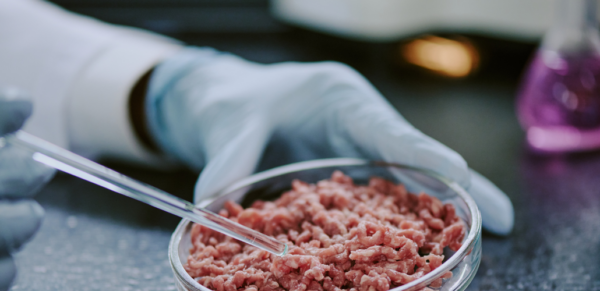Clean Yield Exclusionary Screens Review

Clean Yield routinely audits our exclusionary screens to ensure the criteria succeed in meeting our values and those of our clients. This article — last updated August 2025 — will be amended to provide updates and transparency about our screening process.
Exclusionary Screen Review
In the field of socially responsible investing, Clean Yield’s exclusionary screens are stricter than most. That’s by design. We take these screens very seriously, and they are the starting point of the research we do to select stocks for our clients’ portfolios. With Kofi and Liz having joined our team in August 2024, it is a good time to revisit these screens, and make sure they meet our clients’ needs and intentions.
Our approach is to review each screen individually, implement any changes as we go, and communicate to our clients what is changing, and why. Part of our goal is to make the screens easier to understand for our clients and ourselves (the analysts who are using them!). Our screens may change to reflect evolving norms or values. If you ever have a question about these changes or want to discuss applying a different screen to your portfolio, please don’t hesitate to contact your portfolio manager.
Animal Testing
Clean Yield’s animal welfare screen historically stated the following:
Clean Yield screens out all companies* materially involved in the following areas:
- Animal testing, beyond legal requirements*
- Fur production
- Abuse of animals for entertainment
- Factory farming
*Corporate disclosure on animal testing tends to be very poor. As such, we will adhere to this screen as faithfully as possible.
As the language notes, companies tend to avoid talking about animal testing. The intent of our screen is to avoid investing clients’ assets in companies that are testing products on animals that don’t need to be, as well as to encourage companies not to test on animals when not required. In reviewing the screen, we realized that our use of “legal requirements” is vague and may screen out more companies than intended.
When we think about animal testing within legal requirements, we are presumably thinking of pre-clinical FDA testing, where medical drug or device companies, for example, need to demonstrate safety before being allowed to advance to clinical human testing in Phase 1. As of early January 2025, the FDA is actively promoting the development and use of non-animal testing methods, while acknowledging that non-animal methodologies are not yet available for many products. ESG data vendors often classify companies’ animal testing practices into pharmaceutical (required) and non-pharmaceutical (not required).
However, there are additional categories of products that need to meet safety requirements as well, such as food, cosmetics, personal care products, and home cleaning products. These are the types of companies that we found to have vague language in their animal testing policies—generally they test on animals when required by regulation or when there is no alternative available to demonstrate safety. This led us to question what “demonstrating safety” means, and to whom.
One thing that we found is a U.S. law passed in 2022 called the Modernization of Cosmetics Regulation Act (MoCRA) that required adequate safety substantiation for all cosmetic products in the U.S., without specifying what the documentation looks like. For a company that is trying to demonstrate safety — such as for a novel ingredient that hasn’t been used elsewhere before — if there is no other widely accepted test besides animal testing, the company would be compelled to use animal testing to document safety, even if it was not strictly “required by law.”
For non-cosmetic products, such as cleaning products, requirements are a bit different. Products with specific uses such as anti-microbials, disinfectants, or pesticides need EPA registration, so any testing required would fall under the legal requirements umbrella. For other products, they can be registered with non-profit registrars to demonstrate safety. NSF International, for example, is an independent, internationally recognized standards and certifications organization that certifies non-food chemical compounds.
We reviewed our ESG data provider’s assessment of all U.S. companies tagged as potentially participating in non-pharmaceutical animal testing, including companies that disclose testing and those that don’t, but are involved in activities such as pharmaceutical or personal care product manufacturing that likely involve testing. The assessment considered if the company referenced animal testing in any public documents, if there were any policies included in the disclosure, and what the policies addressed. After this review, we determined that our current screening language excludes companies that take the issue of animal testing seriously and offer transparency, in favor of companies that are quieter on the issue.
Therefore, our new animal testing screen states that we avoid investing in companies that display “disregard for animal welfare, such as by engaging in animal testing beyond legal requirements without policy governance to reduce animal testing.” We feel that this updated language still prevents us from investing in companies that irresponsibly engage in animal testing, while not restricting us from those that take the issues seriously and have strong processes in place to govern and reduce the use of animal testing.
Additionally, in doing this research, we realized that another of our animal welfare screens calls for avoiding “factory farming,” which doesn’t have a widely accepted definition; the closest we could find to a definition is a Concentrated Animal Feeding Operation (CAFO), which has a specific definition from the EPA that doesn’t quite capture our intents. We changed this screen to “conventional factory farming,” which is a better description of what we are trying to avoid.
Here, then, is our revised animal welfare screen:
Clean Yield screens out all companies materially involved in the following areas:
- Companies that show disregard for animal welfare, such as by engaging in animal testing beyond legal requirements without policy governance to reduce animal testing
- Fur production
- Abuse of animals for entertainment
- Conventional factory farming
For more information about our screening criteria or review process, please contact us.
More News & Insights
A New Kind of Meat
Through Clean Yield’s U.S. Sustainable Investment Forum membership, Liz Levy attended a meeting to gain insights on the emerging cultivated meat industry.
Stock Profile: SoFi Technologies
SoFi Technologies, originally named Social Finance, Inc., by its founders, contributes positively to financial inclusion and social well-being by expanding access to affordable financial services through its digital-first platform.
Quarterly Market Outlook: January 2026
As we enter Q1 2026, Clean Yield’s Liz Levy provides a review of what happened in Q4 2025, what we are watching this coming quarter, and how we are positioning our clients for success.


